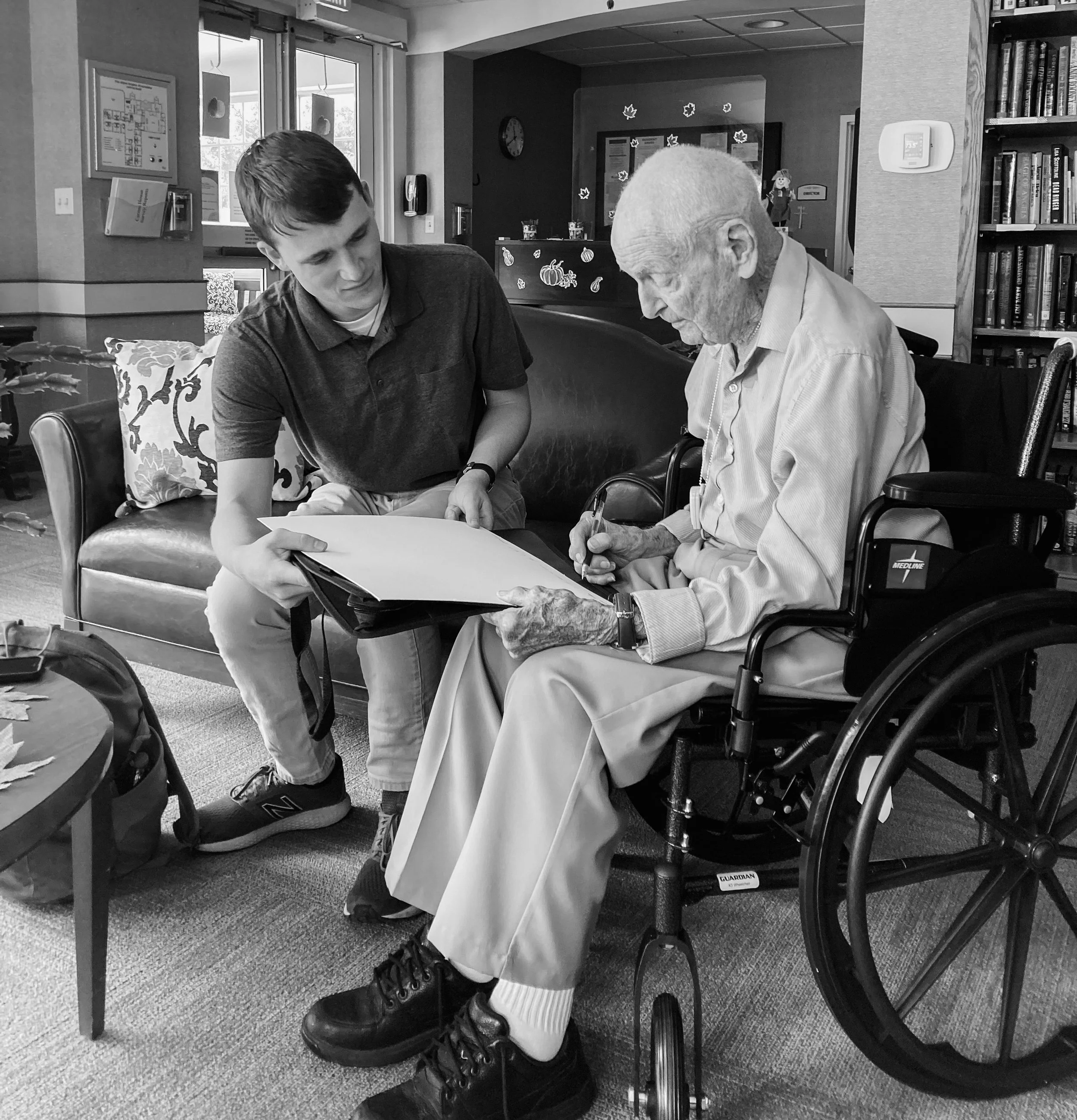
Resources
On this page you’ll find some resources I’ve compiled. In addition to other places to access oral histories , you’ll find some of my favorite organizations, and information on how to record oral histories with the people you know.
Record an oral history…
Though it may seem daunting, recording an oral history is incredibly simple. All you need is a smartphone or voice recorder and someone to talk to! Here are some ideas and tips to help you get started.
Family History -
Some of the most beautiful and most valuable oral histories can be the closest to home. If you have an older family member, sit down with them and ask to hear some stories from when they were growing up. What were their holiday traditions like? What stories do they remember their parents telling them? What did they think when the moon landing happened? What about when President Kennedy was assassinated? Many of our older relatives have seen a lot, we just don’t ever think to ask them about it. And it can be so fruitful to learn our family histories. In doing so, we become rooted. We begin to be able to place our family in historical eras and events, and it helps us to understand history as our story. When we learn these stories from our elders, we can continue to pass them on to those who come after us, and to embrace them as our heritage. What a gift!
Witnesses to Historical Events -
There are people all around us who have witnessed and participated in historical events. Think about who may be living in your community, especially older folks. Reach out to nursing homes in your area, and see if anybody living there might want to speak with you. Someone who is 90 years old was born in 1933. Their earliest memories include the Great Depression, and they would remember being a kid during WWII. They were teenagers in the 1940s and 1950s, and they were young adults in the early 1960s. Even if they “didn’t do anything”, they’ve seen a lot. They can tell you what your community was like back in the day, or what it was like for an average person to be a teenager in the 1940s. Even the most “mundane” thing can be a very wonderful story. Ask them about it! If you know a veteran, don’t hesitate to ask them if you can sit down and hear about their experiences. Some may not want to speak about it, and that’s okay. But many are happy to tell you about what they went through. Some of our veterans, especially from around the Vietnam era, were sidelined and forgotten when they came home. Give them a listening ear, and show them your gratitude.
Especially in the West, older people are very often pushed out of view. That’s abhorrent. They have such tremendous value, and relationships with them are among the most fruitful and fun I’ve had. Even if a more formal interview doesn’t work out, many of them (especially in nursing homes) are just happy to spend time with someone. Spend time with them!
Do’s and Don’ts -
Do remember to place the person at the center of the interview. Sometimes, we can treat a story as a thing we have to extract from someone, and we can forget that we’re talking to a person, not conducting some sort of transaction. More than anything, the oral history is about spending time with the person and hearing what they have to say.
Don’t be afraid to ask questions! Sometimes interviewees don’t really know what you’ll want to hear, and they’ll be afraid of boring you with too much detail. Invite them in to sharing detail. What did it sound like? What did it feel like? What was running through your mind? Of course, respect their boundaries - but don’t hesitate to ask!
Make sure you test your recording equipment before the interview starts. It’s incredibly frustrating to end up not being able to hear the recording. Smartphones are generally pretty good at recording voices, but I always like to place mine closer to the interviewee than I do to myself, just to be sure it picks up their voice.
If you are recording an interview, start with small talk! Spend 5-10 minutes just talking to the person, especially if you’ve never met them before. This will put you both more at ease, and make the interview more natural.
It can be helpful to start interviews with a formal introduction. For example, “My name is Patrick, the date is January 1, 2023, and I’m sitting here with John Smith to hear about his experiences during WWII.” Then ask your first question. This makes it easier to sort through interviews later on, and helps to preserve the identity of the interviewee if the recording is ever misplaced or mislabeled.
Again, put the person at the center of the interview. If they don’t want to talk anymore, or if they start going off topic and want to hear about your life and your family, that is good! You can ask guiding questions to get them back on track when there’s a break in the conversation. The most enduring thing will be the time you spend with the interviewee. That’s always the best part - even if the interview gets totally derailed, it’s such a gift to be able to share time with these people. Soak up that time. It’s the most valuable part of all of this. (And if you’re worried about the interview’s presentation quality, you can always edit out those off topic parts later on.)
Other Resources:
Here are some of my favorite groups and people working to capture and share oral histories, and more generally, to preserve history:
The Rifle - an instagram account and book
WWII Beyond the Call
Scott Davis
More Coming Soon!